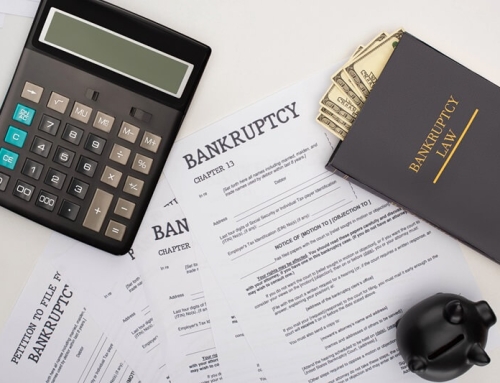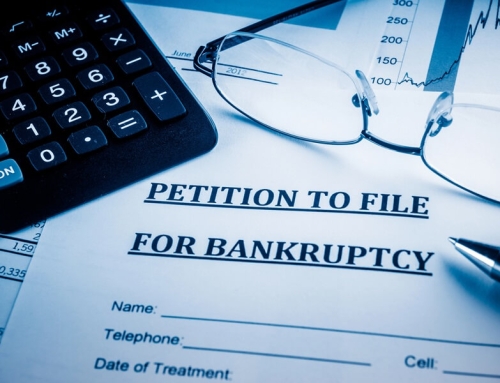What Kinds Of Debts Are Discharged In Chapter 7 Bankruptcy?
Bankruptcy can have significant impacts on a person’s financial situation and future opportunities. Thus, it’s important to understand exactly which types of debts can be discharged in Chapter 7 bankruptcy.
Even if a debt is dischargeable, there may be exceptions or limitations based on the individual’s specific circumstances, such as the value of their assets or their income level. Additionally, filing for bankruptcy can have long-term effects on a person’s credit history and access to credit, so it should not be taken lightly.
Dischargeable Unsecured Debt
Unsecured debt refers to debt that is not backed by collateral. Generally, this type of liability can be discharged in a Chapter 7 bankruptcy. On the other hand, secured debt is backed by collateral, which can be repossessed by the creditor if the borrower fails to make payments as agreed. Examples of secured debt include mortgages and car loans.
Some common types of unsecured debt that can be discharged in a Chapter 7 bankruptcy include personal loans, back rent, medical bills, and credit card charges. However, not all unsecured debt is dischargeable, and there may be exceptions or limitations based on the individual’s specific circumstances.
It’s important to consult with a qualified bankruptcy attorney to fully understand your options and the potential consequences of filing for bankruptcy.
Which Unsecured Debts Are Non-Dischargeable In Chapter 7?
As mentioned above, not all unsecured debt is dischargeable. The most common examples include the following.
Student Loans
Student loans are a type of unsecured debt, which means that they are not backed by collateral. However, student loans are generally not dischargeable in a Chapter 7 bankruptcy unless the borrower can demonstrate that repaying the debt would cause undue hardship.
To prove undue hardship, the borrower must meet a strict standard established by the courts. This typically requires showing that they are unable to maintain a decent standard of living if they have to repay the loan. Moreover, their financial situation may persist for a significant part of the repayment period, and they have shown good faith in repaying the loan.
Debt Through Fraud & False Pretense
Debts that result from fraud or false pretense are generally non-dischargeable in a Chapter 7 bankruptcy. This includes situations where a person obtains property, services, or cash through fraudulent means, such as using someone else’s identity or misrepresenting their income or financial situation to obtain a loan.
If a person is found to be filing for Chapter 7 bankruptcy in an attempt to defraud their creditors, their debts will not be discharged, and they may face additional penalties, fines, and even criminal charges in some cases.
Significant Purchases Or Advances Just Before Filing for Chapter-7 Bankruptcy
One of the critical requirements for eligibility for Chapter 7 bankruptcy is that the filing is done in good faith, without any intention to defraud or deceive creditors. If a debtor makes significant purchases or takes out advances just before filing for bankruptcy, it may be viewed as an attempt to avoid repayment obligations and could result in the debt not being discharged.
In general, debts incurred or transactions made within 90 days before filing for bankruptcy are subject to scrutiny, and any “suspect” transactions may be deemed ineligible for discharge. Seek legal advice and avoid any actions that could be seen as fraudulent or deceptive to ensure that the bankruptcy process is not compromised.
Tax Debt
Tax debts are generally not dischargeable in bankruptcy, but there are some exceptions. For example, income taxes can be discharged if there is no fraud or tax evasion involved. Additionally, income tax debts may be dischargeable if the tax returns were filed more than two years before filing for bankruptcy.
Other circumstances where income tax debts may be dischargeable include if the taxes were due more than three years before filing for bankruptcy or if the tax liability was assessed more than 240 days before filing.
Reasons To Hire A Bankruptcy Attorney From Austin Bankruptcy Lawyers
Attorneys from Austin Bankruptcy Lawyers are experienced in the field of bankruptcy cases. They have dealt with similar situations as yours and can cater to your legal needs. Since the kind of debt that is dischargeable can vary depending on factors like state laws and special circumstances, you need a bankruptcy attorney in Austin, TX, to let you know what is dischargeable in your case.
Summary
Chapter 7 bankruptcy can discharge most unsecured debts, but there are exceptions and limitations based on individual circumstances. Student loans, debts incurred through fraud or false pretense, significant purchases or advances made just before filing for bankruptcy, and tax debts may not be dischargeable. It’s important to consult with a qualified bankruptcy attorney to understand the options and potential consequences of filing for bankruptcy.
& Let’s Discuss How We Can Best Help Eliminate Your Specific Financial Struggles!





